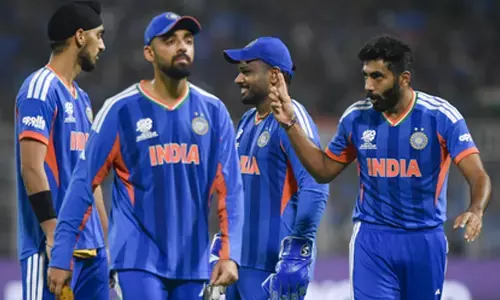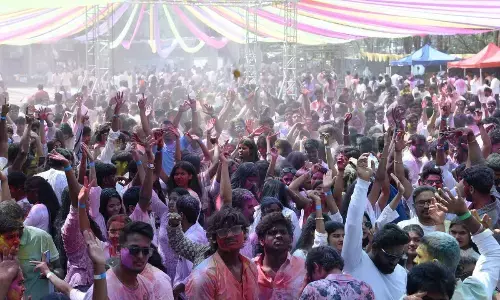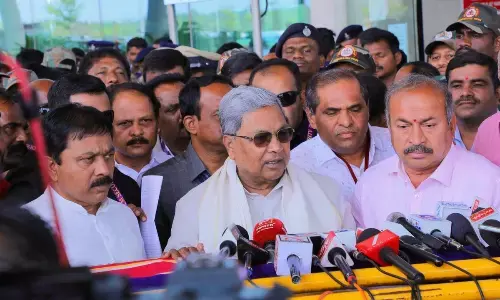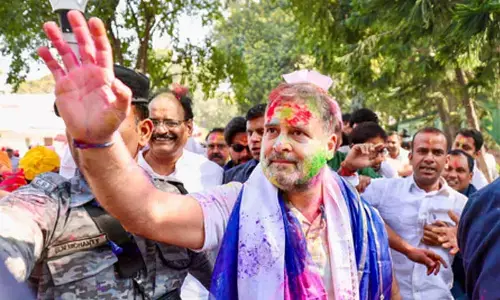Measles: 'An imminent global threat'
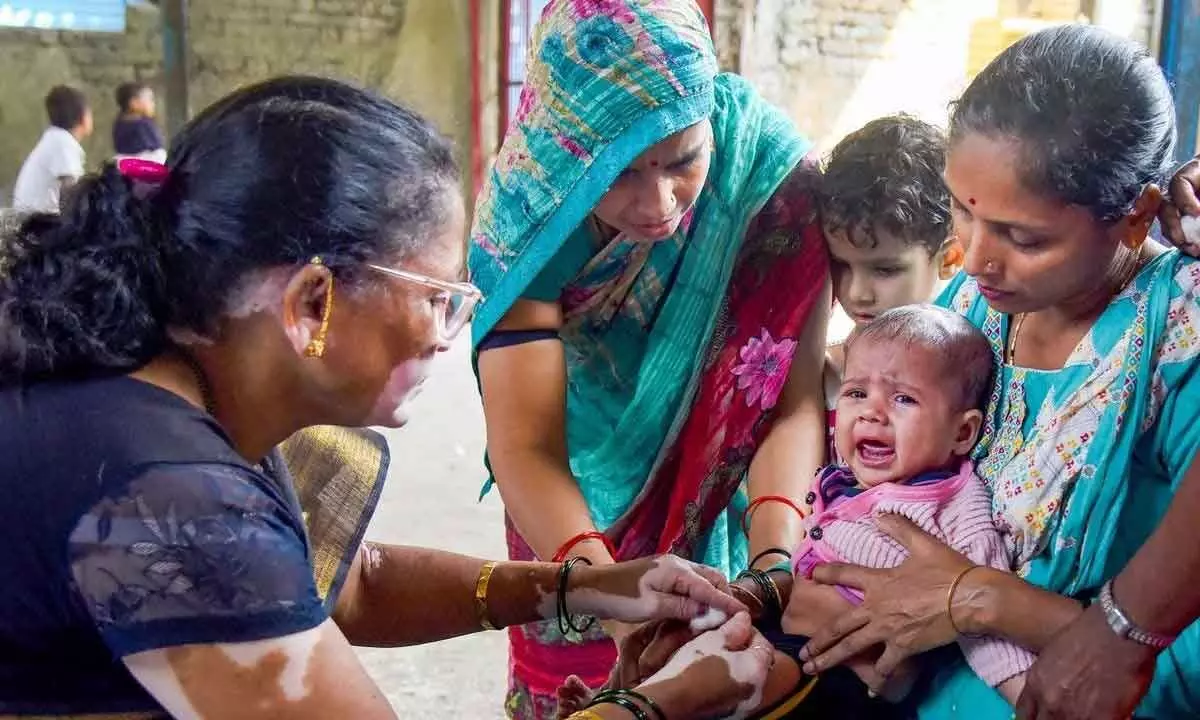
Nearly 40 mn children missed at least one measles vaccine dose in 2021
London: One consequence of the pandemic was reduced access to routine healthcare and lower uptake of immunisations. As a result, in November 2022, the World Health Organization (WHO) declared measles to be an "imminent threat in every region of the world." They described how a record number of nearly 40 million children had missed at least one measles vaccine dose in 2021.
Measles is a viral respiratory illness. Transmission is similar to COVID, with the spread between people being driven by respiratory droplets and aerosols (airborne transmission). The infection produces a rash and fever in mild cases. But severe cases can include encephalitis (brain swelling), blindness and pneumonia. There are approximately 9 million cases a year and 1,28,000 deaths.
The measles vaccine, which can be administered by itself or in combination with other vaccinations such as mumps and rubella to make up the MMR immunisation, is very effective. Most countries have a two-dose schedule, with the first jab usually given at 12 months of age and the second dose when the child is four years old. The vaccine provides very high and long-lasting protection, and really is a model example of the term "vaccine-preventable disease."
The two-dose schedule gives about 99% protection against measles infection. In developing countries where vaccine uptake is low, as many as one in ten who get measles, die from it. In developed countries, deaths are overwhelmingly in unvaccinated people at a rate of around one in 1,000 to 5,000 measles cases. The potential for new outbreaks of vaccine-preventable diseases in areas such as conflict zones and among refugee populations is high.
Problems such as malnutrition greatly raise the risks of severe illness, and respiratory infectious diseases are a huge concern for humanitarian groups supporting vulnerable groups such as Ukrainian refugees. Measles is incredibly infectious. Its basic reproduction number (R0) – that is, how many people on average an infected person will go on to infect in a susceptible population – is estimated to be between 12 and 18. For comparison, the R0 of the omicron COVID variant is thought to be around 8.2.
The proportion of a population that needs to be vaccinated to keep outbreaks under control and to minimise onward transmission around a community is known as the herd immunity threshold (HIT). For measles, vaccine coverage of 95% is typically considered to be the HIT magic number. Most of the world is some way below that threshold, with global coverage of around 71% for two doses, and 81% for one dose coverage. In the UK, 2021-22 data shows that 89% of children had received one measles vaccine dose.
Globally, there has been significant progress in reducing deaths from all causes in children under the age of five. Annual deaths declined from 12.5 million in 1990 to 5.2 million in 2019. However, low vaccine coverage could reverse those gains. Even if children survive measles, there is a possibility of long-term damage to their immune system, described as a "form of immune amnesia." In unvaccinated populations, a severe case of measles resulted in an average loss of 40% of antibodies that would normally recognise germs. After a mild case of measles, unvaccinated children lost 33% of those antibodies. By comparison, measurements in healthy control populations indicated an antibody loss of 10% over similar or longer durations.
Anti-vaccine advocacy has driven false rumours and scare stories, such as the fake claims by former physician and anti-vaccine activist Andrew Wakefield that the MMR vaccine causes autism. This belief persists. For example, a US population survey in 2020 found: "18% of our respondents mistakenly state that it is very or somewhat accurate to say that vaccines cause autism." Misinformation since the start of the COVID pandemic has been extensive. And there is a risk of this misinformation further translating into greater levels of hesitancy and vaccine refusal for routine immunisation. Measles spreads easily and is a severe infection in the short- and long-term in unvaccinated populations. There is a great need for immunisation campaigns to increasingly protect against vaccine-preventable diseases, across the globe. The need is particularly urgent in developing countries and among other vulnerable populations such as refugees and areas of conflict.
(Writer is a Senior Research Fellow in Global Health, University of Southampton, UK; The Conversation)



